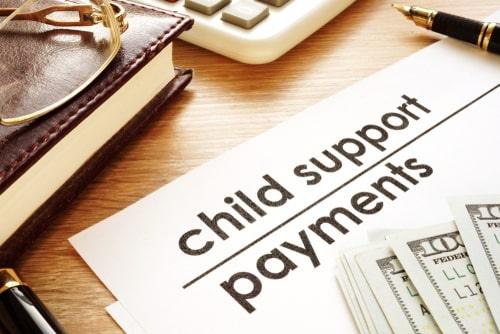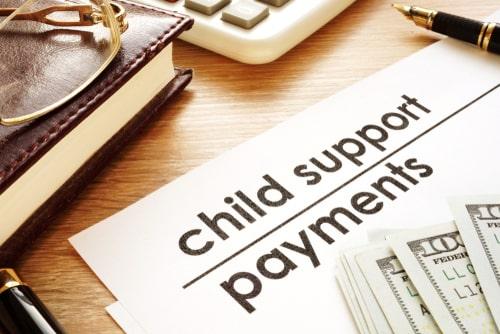Recent Blog Posts
Are Divorced Parents Required to Pay Children’s College Expenses?
 When married parents choose to split up, child support is one of the primary issues they will need to address. Those with younger children will likely be focused on making sure child support will address daily needs, such as providing children with food, shelter, and clothing. However, parents of teenagers may be looking at what will happen as their children grow up and leave home. Parents will usually want to make sure their children can receive the education they need to pursue opportunities in their chosen career. Because of this, divorcing parents will need to consider how they will contribute to their children’s college expenses.
When married parents choose to split up, child support is one of the primary issues they will need to address. Those with younger children will likely be focused on making sure child support will address daily needs, such as providing children with food, shelter, and clothing. However, parents of teenagers may be looking at what will happen as their children grow up and leave home. Parents will usually want to make sure their children can receive the education they need to pursue opportunities in their chosen career. Because of this, divorcing parents will need to consider how they will contribute to their children’s college expenses.
Non-Minor Support in Illinois
While child support is paid until a child graduates from high school or turns 18 (whichever happens later), divorced parents in Illinois also have the obligation to help their children pay educational expenses when attending college. When creating a divorce settlement, parents may agree on how much they will each contribute, or the court may order either or both parents to pay a certain amount based on the incomes they earn and the property they own. When determining an appropriate amount, the court may also consider the financial resources available to the child, such as college savings accounts or financial aid.
Dividing Valuable and Unique Collections in a Divorce
 Going through a divorce in Illinois will require all marital property to be accurately classified and divided according to the theory of equitable distribution. Yet certain types of property can pose complications, and it can be necessary to take additional steps to determine how particular assets should be classified and valued. Indeed, dividing valuable and unique collections in a divorce can result in complexities that may require assistance from expert appraisers in addition to in-depth investigations to determine whether the property should be classified as a separate or marital asset. Valuable and unique collections can range from art and rare book collections to antique jewelry and furniture in the couple’s home.
Going through a divorce in Illinois will require all marital property to be accurately classified and divided according to the theory of equitable distribution. Yet certain types of property can pose complications, and it can be necessary to take additional steps to determine how particular assets should be classified and valued. Indeed, dividing valuable and unique collections in a divorce can result in complexities that may require assistance from expert appraisers in addition to in-depth investigations to determine whether the property should be classified as a separate or marital asset. Valuable and unique collections can range from art and rare book collections to antique jewelry and furniture in the couple’s home.
Our DuPage County property division attorneys want to provide you with some of the information you will need as you consider the divorce process and the division of distinctive collections or collectible assets that may be classified as marital property under the Illinois Marriage and Dissolution of Marriage Act (IMDMA).
Will the Court Deviate from the Child Support Guidelines?
 Any parents who are going through a divorce in Oakbrook Terrace, Illinois, and share minor children from their marriage should also be thinking about child custody and child support under the Illinois Marriage and Dissolution of Marriage Act (IMDMA). You might already know that, in terms of child support, Illinois follows an “income shares” model for calculating child support. With this model, the court uses a general formula to determine the total child support obligation for both parents, which is then shared based on their individual incomes and other relevant factors. Yet there are a variety of reasons that one or both parents might want the court to deviate from the existing Illinois Child Support Guidelines, and you might be wondering if the court could deviate from the guidelines in your case.
Any parents who are going through a divorce in Oakbrook Terrace, Illinois, and share minor children from their marriage should also be thinking about child custody and child support under the Illinois Marriage and Dissolution of Marriage Act (IMDMA). You might already know that, in terms of child support, Illinois follows an “income shares” model for calculating child support. With this model, the court uses a general formula to determine the total child support obligation for both parents, which is then shared based on their individual incomes and other relevant factors. Yet there are a variety of reasons that one or both parents might want the court to deviate from the existing Illinois Child Support Guidelines, and you might be wondering if the court could deviate from the guidelines in your case.
While there are only limited circumstances in which the court is likely to deviate from guidelines in determining the child support obligation as part of a divorce, our Oakbrook Terrace child support attorneys can discuss the likelihood of a deviation occurring in your particular case.
What Is Conciliation in a DuPage County Divorce?
 Divorces in Oakbrook Terrace and throughout DuPage County are governed by the Illinois Marriage and Dissolution of Marriage Act (IMDMA). Under the IMDMA, you may already know that the only way to get divorced is through a no-fault divorce path. In other words, Illinois no longer recognizes fault-based grounds for divorce. Rather, to obtain a divorce, the party who files a petition for the dissolution of marriage must plead that “irreconcilable differences have caused the irretrievable breakdown of the marriage,” and the court must determine that “efforts at reconciliation have failed or that future attempts at reconciliation would be impracticable and not in the best interests of the family.”
Divorces in Oakbrook Terrace and throughout DuPage County are governed by the Illinois Marriage and Dissolution of Marriage Act (IMDMA). Under the IMDMA, you may already know that the only way to get divorced is through a no-fault divorce path. In other words, Illinois no longer recognizes fault-based grounds for divorce. Rather, to obtain a divorce, the party who files a petition for the dissolution of marriage must plead that “irreconcilable differences have caused the irretrievable breakdown of the marriage,” and the court must determine that “efforts at reconciliation have failed or that future attempts at reconciliation would be impracticable and not in the best interests of the family.”
How can you show the court that you have met the requirement of irreconcilable differences, and how does this requirement relate to the term “conciliation” as it is used in the IMDMA? Our Oakbrook Terrace divorce attorneys have more information to help you understand no-fault divorce and the possibility of conciliation.
What Should I Do If I Think My Spouse is Hiding Assets?
 When you are going through a divorce in DuPage County, both you and your spouse will be required to complete a financial affidavit that has been approved by the Illinois Supreme Court. In the financial affidavit, you will provide detailed information about your assets and debts, including funds in accounts, prepaid debit cards, stocks, bonds, investment accounts, mutual funds, real estate, motor vehicles, business interests, life insurance policies, retirement benefits, income tax refunds, lawsuit recoveries, valuable collectibles, and any other assets. The financial affidavit requires you to provide information about assets and debts — as well as any assets sold or transferred worth more than $1,000 in the last two years — that may be classified either as separate or marital property.
When you are going through a divorce in DuPage County, both you and your spouse will be required to complete a financial affidavit that has been approved by the Illinois Supreme Court. In the financial affidavit, you will provide detailed information about your assets and debts, including funds in accounts, prepaid debit cards, stocks, bonds, investment accounts, mutual funds, real estate, motor vehicles, business interests, life insurance policies, retirement benefits, income tax refunds, lawsuit recoveries, valuable collectibles, and any other assets. The financial affidavit requires you to provide information about assets and debts — as well as any assets sold or transferred worth more than $1,000 in the last two years — that may be classified either as separate or marital property.
The court will use the financial affidavit and other supporting documentation to determine which assets and debts should be classified as separate property (and thus not distributed in the divorce) and which assets and debts should be classified as marital property and divided according to the terms of equitable distribution. Both parties are required to fill out the financial affidavit fully and accurately. Yet what happens if one spouse intentionally avoids identifying assets and may be trying to conceal property? Our DuPage County divorce lawyers want to provide you with more information.
Penalties for Failure to Pay Child Support
 If you are going through a divorce and you share minor children with your spouse, your divorce case will include the allocation of parental responsibilities and a child support determination. Under the Illinois Marriage and Dissolution of Marriage Act (IMDMA), courts use an “income shares” model to determine the child support obligation. Under this method, both parents are responsible for paying a portion of the child support obligation based on their individual income and other factors such as the total number of overnights for which they provide caretaking functions for the child. With the income shares model, the court combines both parents’ incomes and uses that figure to determine the total child support obligation based on the Illinois guidelines. Then, each parent is responsible for paying a percentage of that total obligation.
If you are going through a divorce and you share minor children with your spouse, your divorce case will include the allocation of parental responsibilities and a child support determination. Under the Illinois Marriage and Dissolution of Marriage Act (IMDMA), courts use an “income shares” model to determine the child support obligation. Under this method, both parents are responsible for paying a portion of the child support obligation based on their individual income and other factors such as the total number of overnights for which they provide caretaking functions for the child. With the income shares model, the court combines both parents’ incomes and uses that figure to determine the total child support obligation based on the Illinois guidelines. Then, each parent is responsible for paying a percentage of that total obligation.
Many different situations can arise that can result in a parent being unable to pay his or her portion of the child support obligation, but it is critical to understand that failure to pay child support can have serious consequences. Whenever you have questions or concerns about child support, you should seek advice from a DuPage County family lawyer to ensure that you are not subject to penalties under Illinois law.
Common Issues in High Asset Divorces
 High asset divorces, or high net worth divorces, in DuPage County often come with their own complications and issues that make them distinct from more traditional or straightforward divorce cases. Whether you are currently in a marriage in which one of the spouses was the primary earner, or both spouses together have been high earners during the marriage, it is critical to learn more about the particularities of high net worth divorces in Oakbrook Terrace and throughout DuPage County.
High asset divorces, or high net worth divorces, in DuPage County often come with their own complications and issues that make them distinct from more traditional or straightforward divorce cases. Whether you are currently in a marriage in which one of the spouses was the primary earner, or both spouses together have been high earners during the marriage, it is critical to learn more about the particularities of high net worth divorces in Oakbrook Terrace and throughout DuPage County.
At Farooqi & Husain Law Office, we know how important it is to have an experienced and dedicated attorney on your side who understands your situation. Our firm has been representing members of the DuPage County Muslim community for years, and our Oakbrook Terrace family law attorneys are here to assist you with your case. In the meantime, the following are some of the common issues that you might anticipate in a high asset divorce in Illinois.
What Are Caretaking Functions in Child Custody?
 If you are going to file for divorce and you have minor children from your marriage, or if you are in the early stages of a DuPage County divorce case that will involve child custody, it is important to understand how Illinois law defines child custody and how courts in the state handle child custody cases. As you might already know, the Illinois Marriage and Dissolution of Marriage Act (IMDMA) governs child custody or the allocation of parental responsibilities. Rather than awarding child custody to one or both parents, Illinois courts allocate parental responsibilities, which include significant decision-making responsibilities and parenting time. Significant decision-making responsibilities are somewhat akin to what courts used to describe as legal custody, while parenting time is somewhat akin to what courts used to describe as physical custody and visitation.
If you are going to file for divorce and you have minor children from your marriage, or if you are in the early stages of a DuPage County divorce case that will involve child custody, it is important to understand how Illinois law defines child custody and how courts in the state handle child custody cases. As you might already know, the Illinois Marriage and Dissolution of Marriage Act (IMDMA) governs child custody or the allocation of parental responsibilities. Rather than awarding child custody to one or both parents, Illinois courts allocate parental responsibilities, which include significant decision-making responsibilities and parenting time. Significant decision-making responsibilities are somewhat akin to what courts used to describe as legal custody, while parenting time is somewhat akin to what courts used to describe as physical custody and visitation.
Within the allocation of parental responsibilities, you might learn about something known as “caretaking functions.” What are caretaking functions in child custody in Illinois? In short, caretaking functions are the responsibilities that parents have for their children when they have parenting time. Our experienced DuPage County child custody lawyers want to provide you with more information about caretaking functions and how they might apply to your child custody case.
Steps to Take When You Have Been Served with Divorce Papers
 Many DuPage County residents who are served with divorce papers already know that their spouse was planning to file for divorce, but some people are surprised. Regardless of whether you were expecting to be served with divorce papers or news of your spouse’s filing has come as a shock, it is critical to think about your next steps. Do you need to respond, and how quickly do you need to do so? Have you hired a divorce lawyer yet to work on your case? And what type of planning do you need to be doing in advance of a court hearing or family mediation? These are all important questions, and it is essential to discuss them with an Oakbrook Terrace family lawyer. Although the Illinois Marriage and Dissolution of Marriage Act (IMDMA) governs all divorces in the state, everyone will have a divorce case with its own set of facts. Accordingly, it will be important to make a plan that fits your needs.
Many DuPage County residents who are served with divorce papers already know that their spouse was planning to file for divorce, but some people are surprised. Regardless of whether you were expecting to be served with divorce papers or news of your spouse’s filing has come as a shock, it is critical to think about your next steps. Do you need to respond, and how quickly do you need to do so? Have you hired a divorce lawyer yet to work on your case? And what type of planning do you need to be doing in advance of a court hearing or family mediation? These are all important questions, and it is essential to discuss them with an Oakbrook Terrace family lawyer. Although the Illinois Marriage and Dissolution of Marriage Act (IMDMA) governs all divorces in the state, everyone will have a divorce case with its own set of facts. Accordingly, it will be important to make a plan that fits your needs.
In the meantime, the advocates at Farooqi & Husain want to provide you with some information about the general steps you should take after you have been served with divorce papers in Illinois.
I Have a Legal Separation But Want to Get Divorced
 Many married couples in DuPage County opt for a legal separation instead of a divorce. Under the Illinois Marriage and Dissolution of Marriage Act (IMDMA), a legal separation can allow spouses to live separate and apart without actually going through the legal process of divorce while still asking the court to determine issues like support and the allocation of parental responsibilities. There are many different reasons that spouses opt for a legal separation instead of a divorce. For many Muslim families, legal separation is preferable to divorce for religious reasons, but you may also have other motivations for seeking a legal separation instead of divorce. For instance, one of the spouses may need to rely on the other spouse’s health insurance for major treatment or care, or the spouses may be thinking about tax considerations.
Many married couples in DuPage County opt for a legal separation instead of a divorce. Under the Illinois Marriage and Dissolution of Marriage Act (IMDMA), a legal separation can allow spouses to live separate and apart without actually going through the legal process of divorce while still asking the court to determine issues like support and the allocation of parental responsibilities. There are many different reasons that spouses opt for a legal separation instead of a divorce. For many Muslim families, legal separation is preferable to divorce for religious reasons, but you may also have other motivations for seeking a legal separation instead of divorce. For instance, one of the spouses may need to rely on the other spouse’s health insurance for major treatment or care, or the spouses may be thinking about tax considerations.
Regardless of your initial reason for seeking a legal separation instead of a divorce, you might now be considering a divorce and you may be unsure about the steps you need to take to move forward. It is important to discuss the particular facts of your situation with a DuPage County family lawyer, but in the meantime, we can provide you with general information about moving from a legal separation to a divorce.


 630-909-9114
630-909-9114




